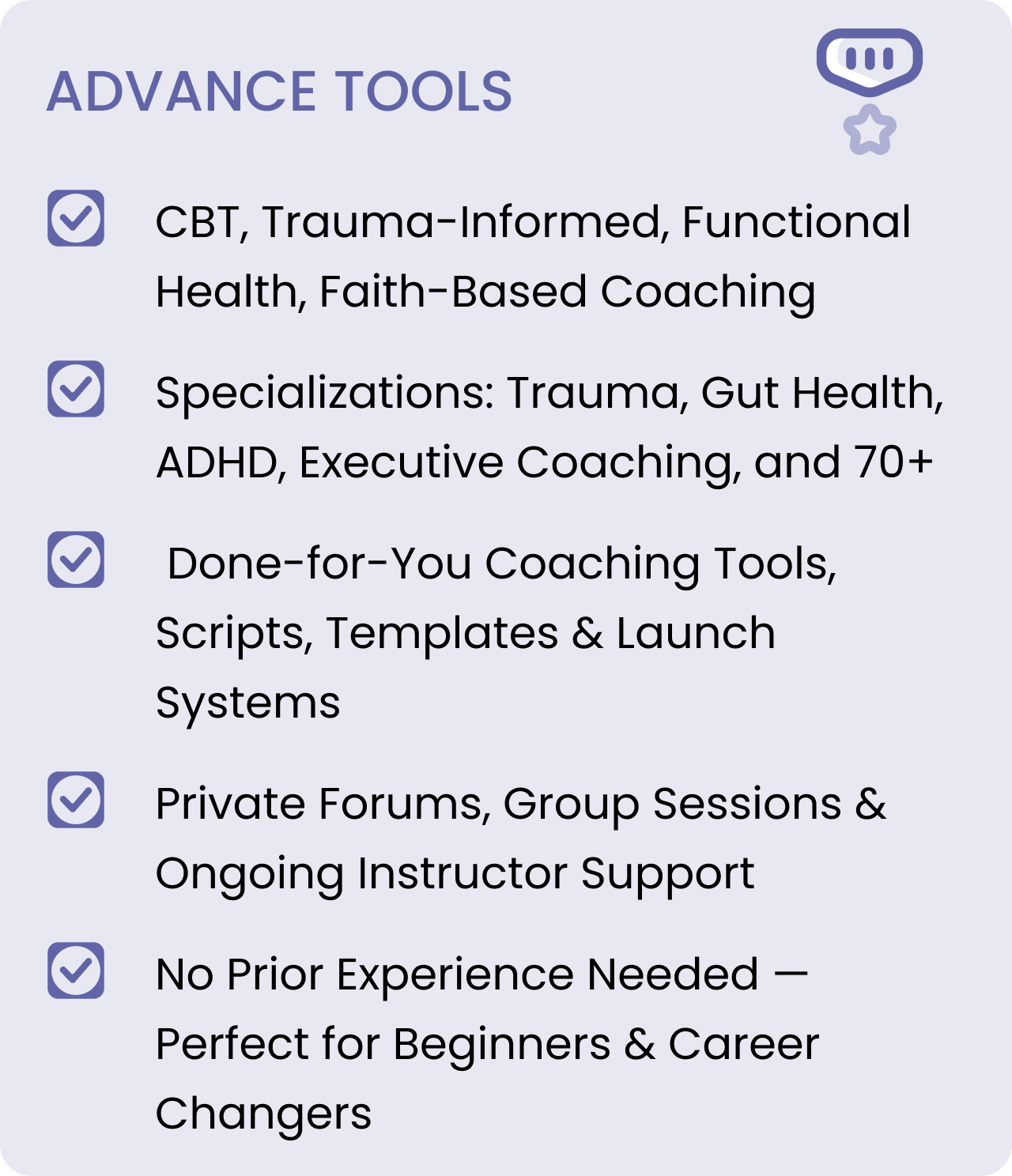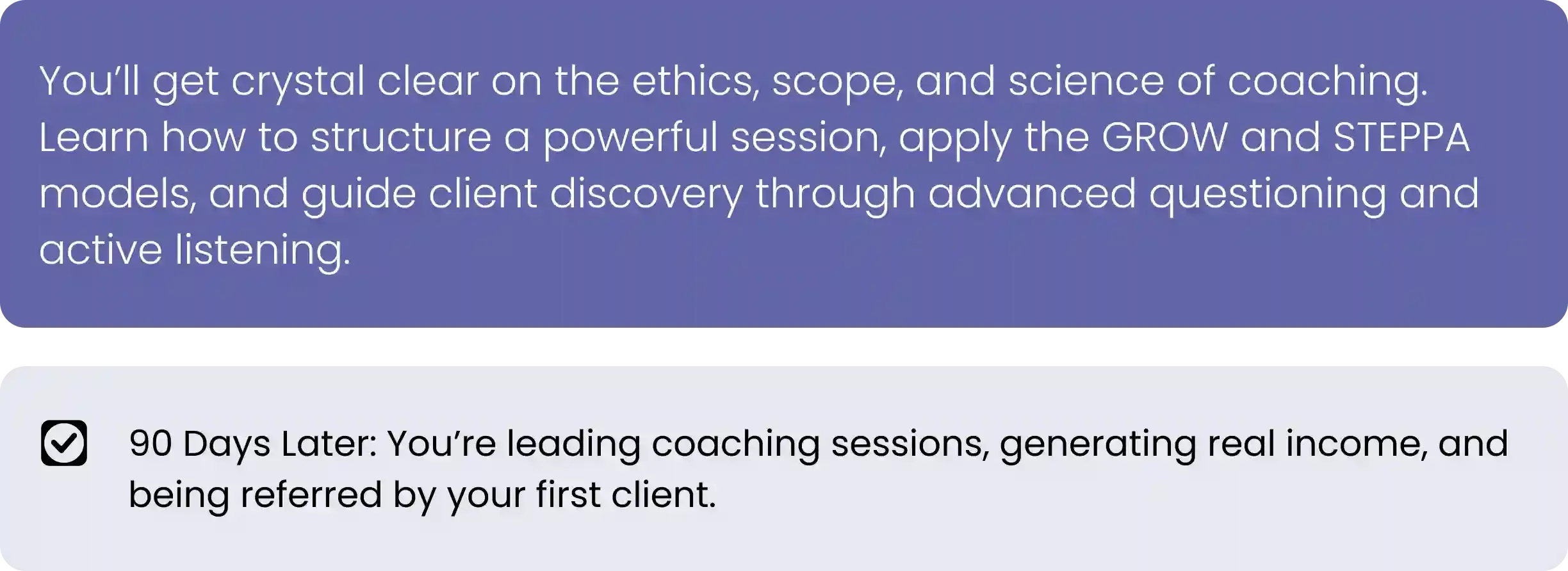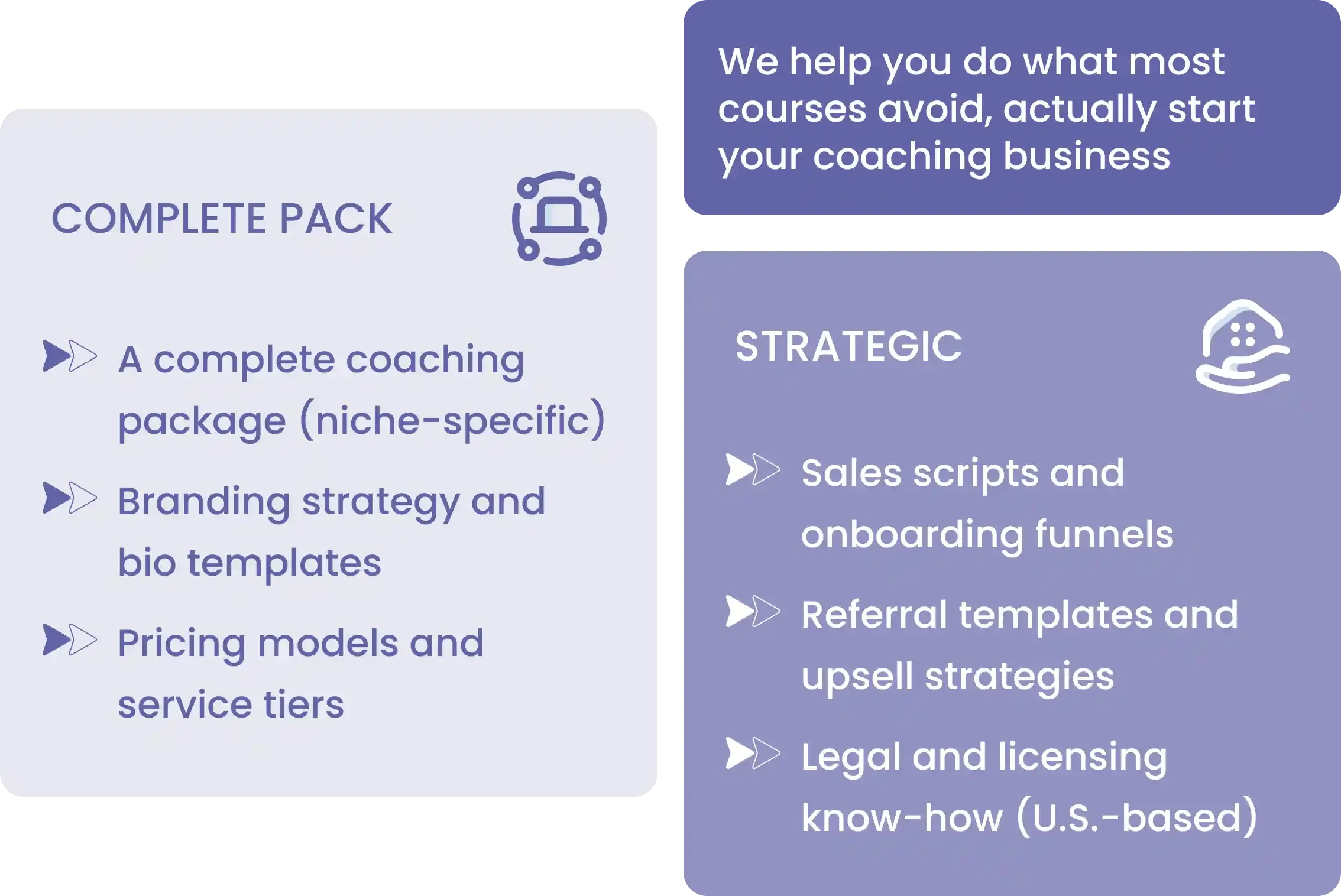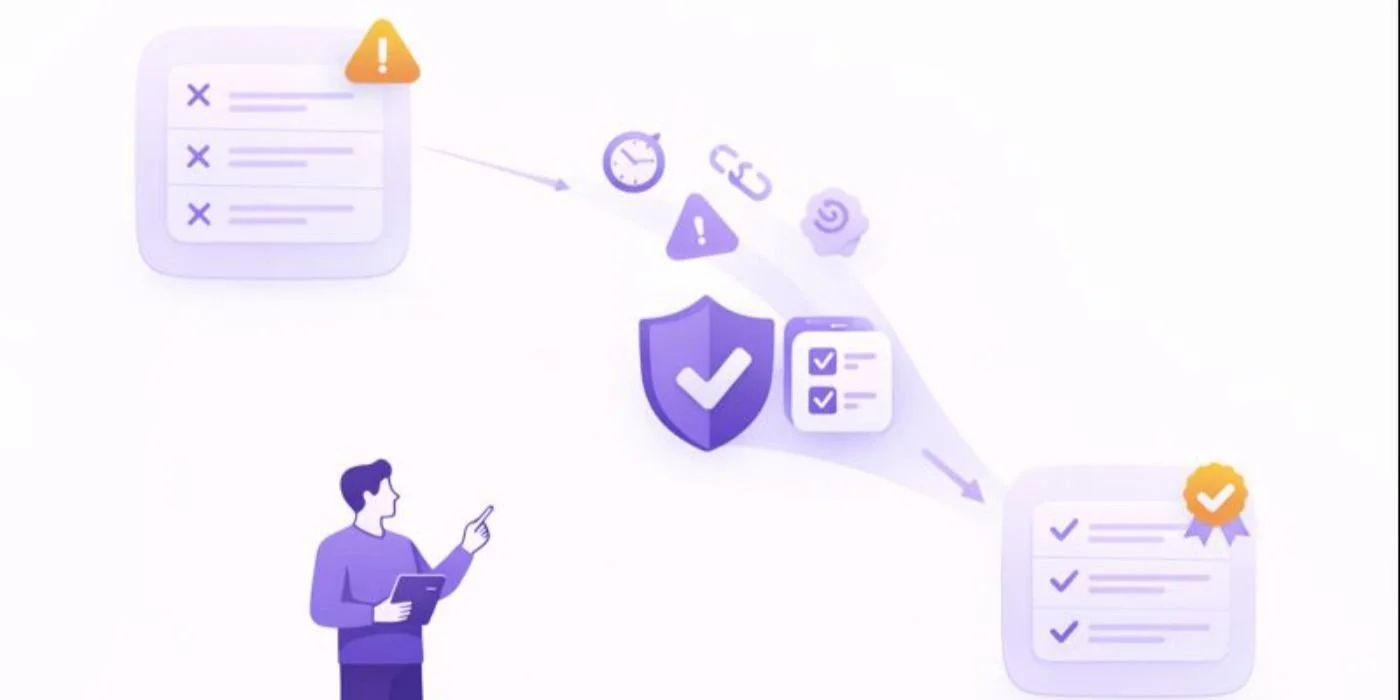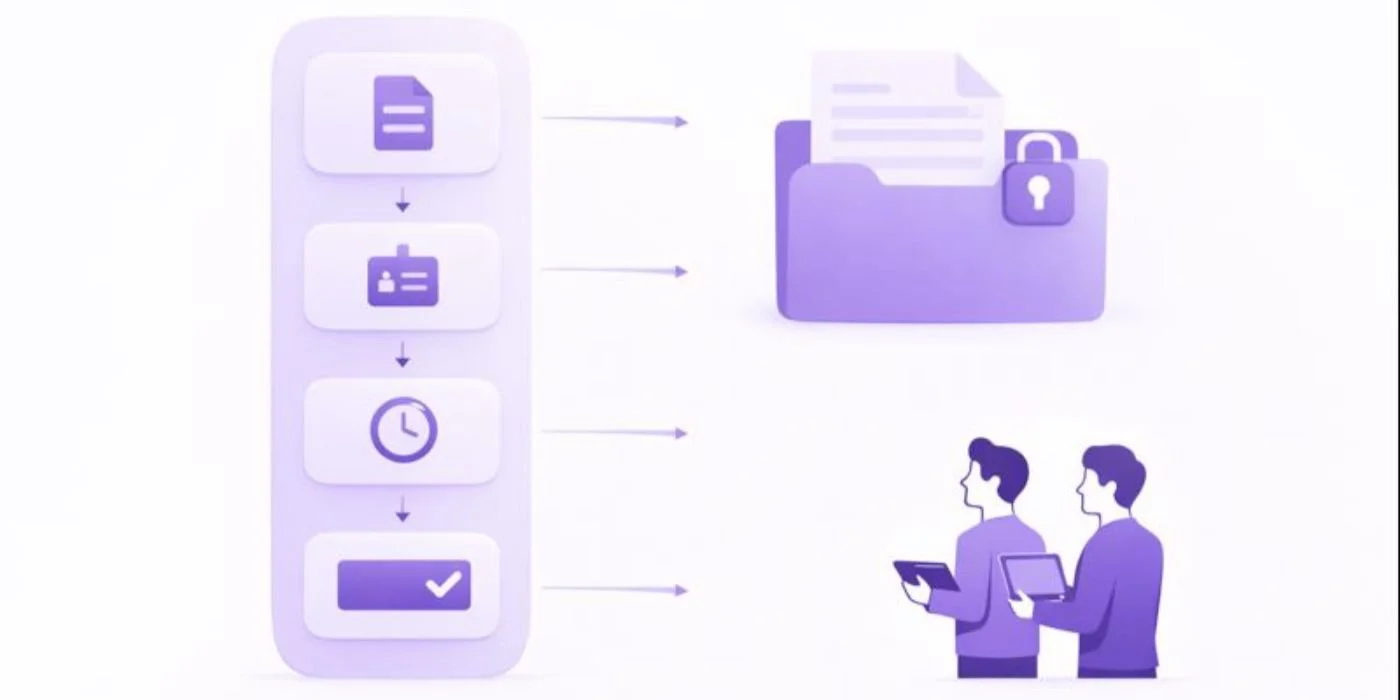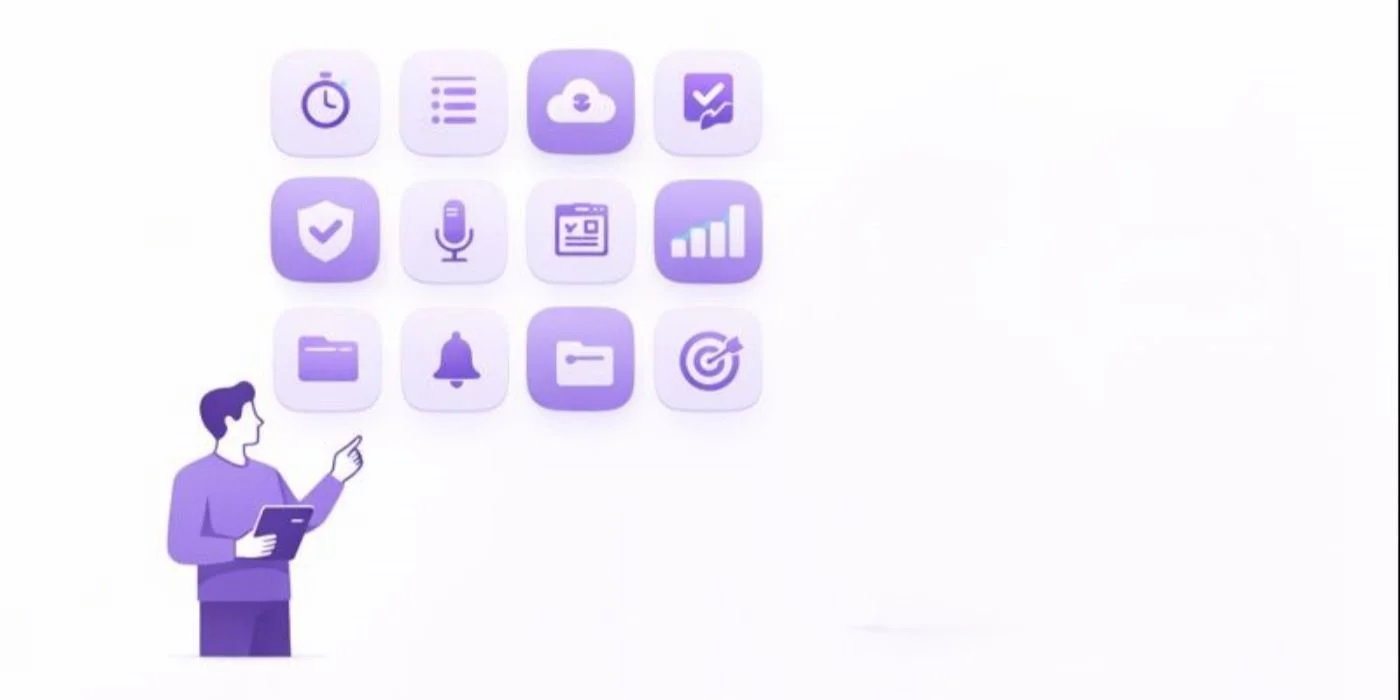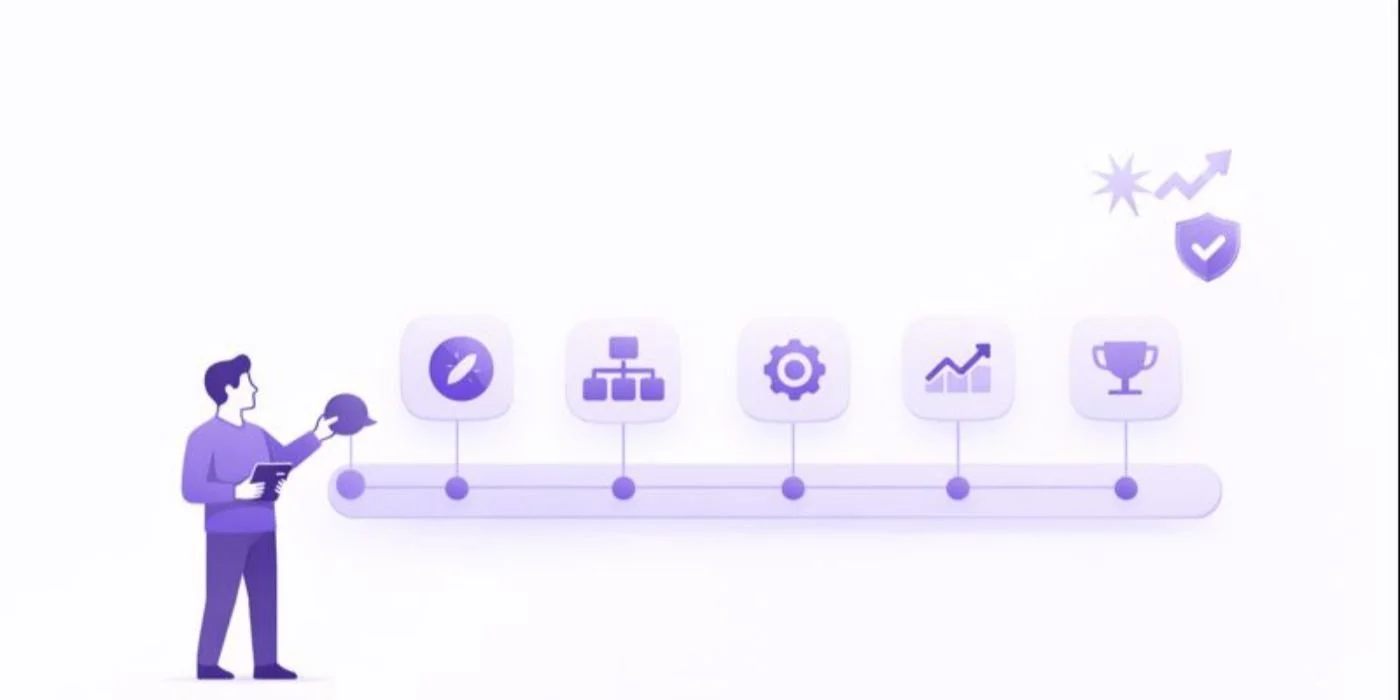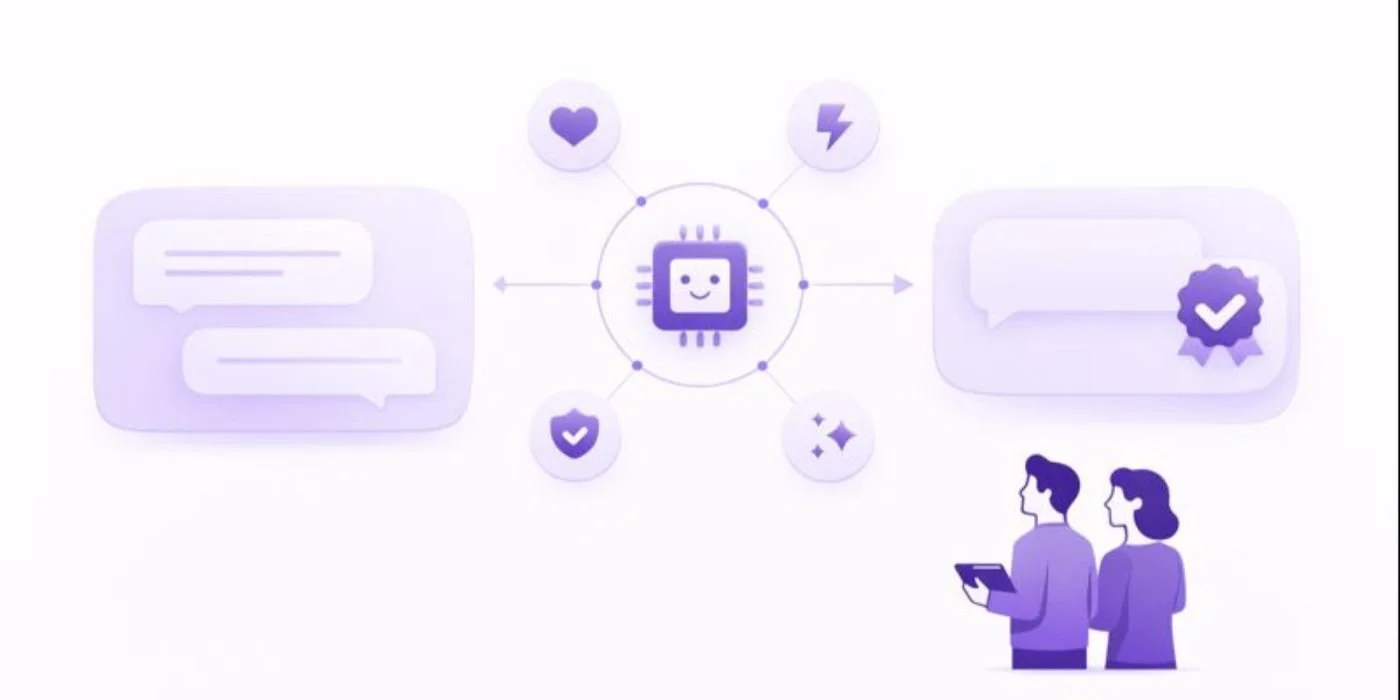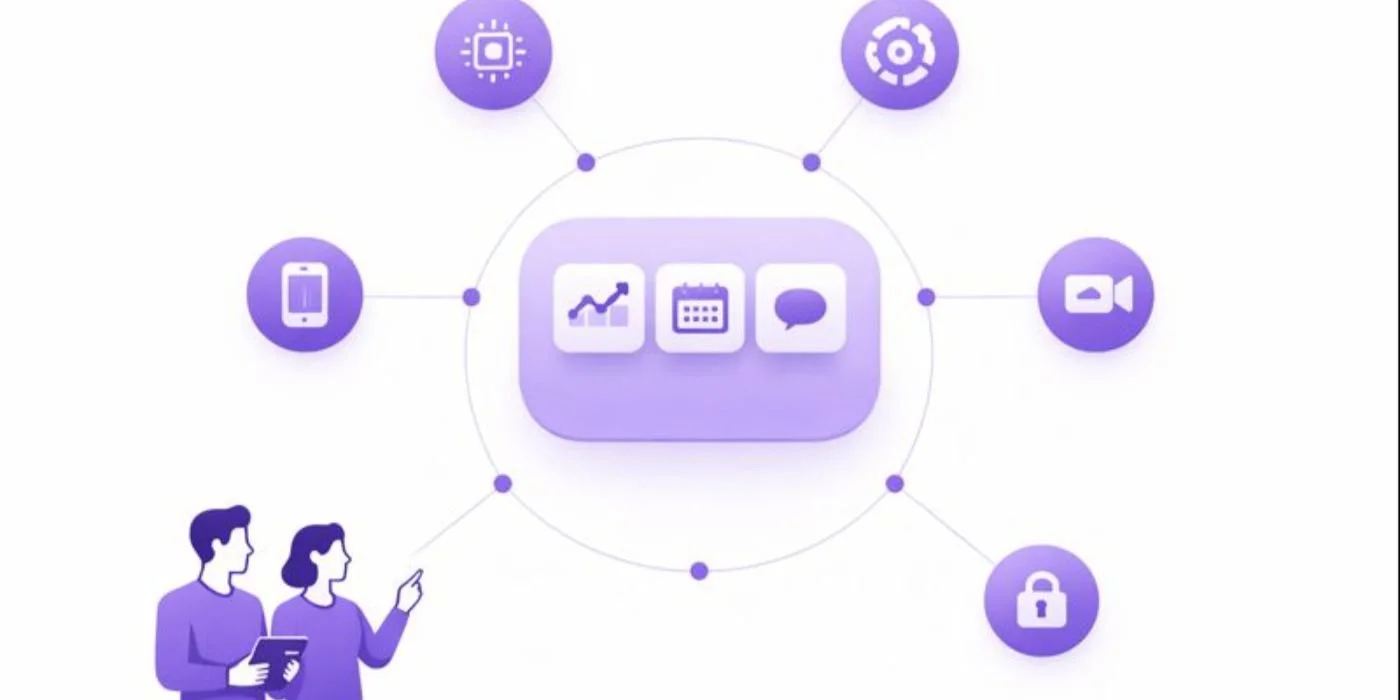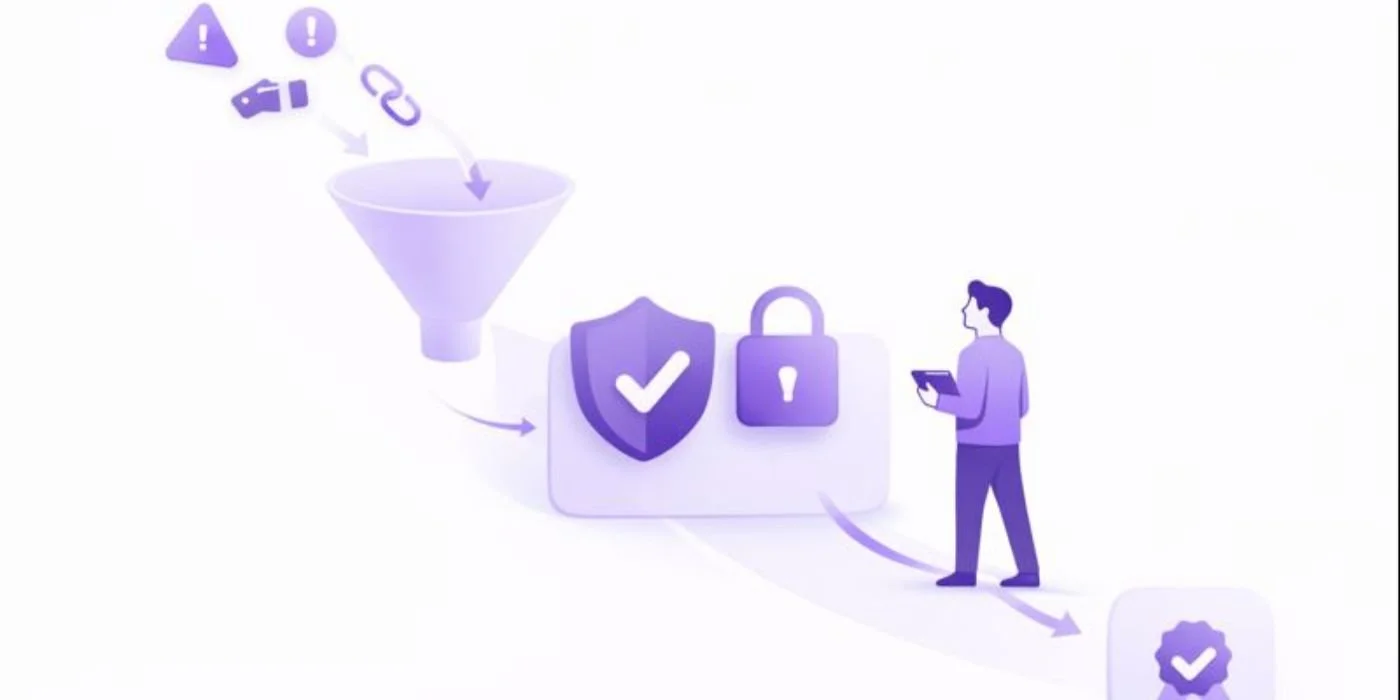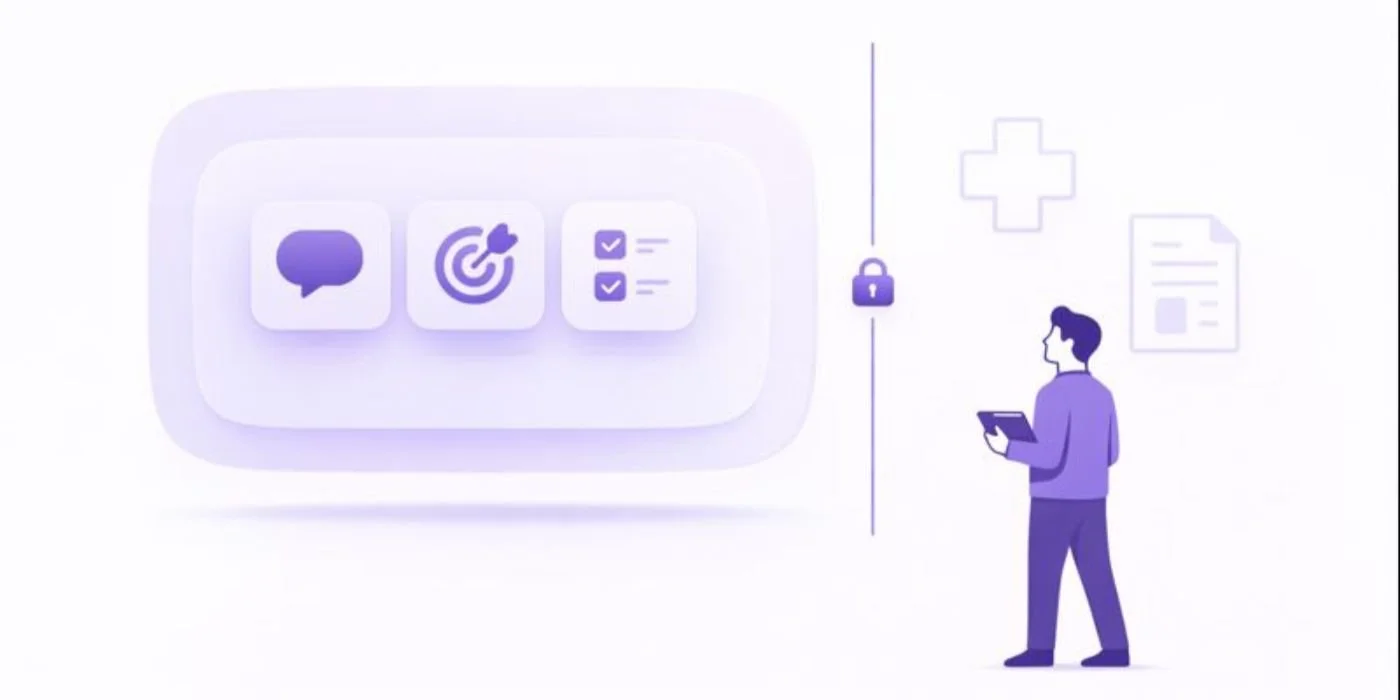Health and Life Coach Certification
Online Health Coach and Life Coach Program
Accredited Multi-Niche Advanced Health and Life Coach Training for All Levels
Become a certified health and life coach with ANHCO’s Health and Life Coach Certification, a CPD-accredited, fully online program built for lifelong career success through multi-niche mastery that allows you to handle every client need.
Earn the CPD-accredited health and life coach certificate recognizing 500+ in-depth topic coverage, ADHLC LinkedIn Credential, and progress toward the CPD Coach of Excellence designation through one the health and life coaching pathway that sets you up for lifetime career success.
Train across 500+ interactive, evidence-based lessons covering 150+ coaching domains. Advisory team backed by integrative physicians and expert practitioners across a range of industries.
Learn through live webinars, review sessions, and 1-on-1 mentorship led by certified Health and Life Coach instructors Dr Gina Sobrero, Rebecca Ahmed, and Hanna Zarour, plus on-demand interactive evidence-based learning, day 1 parallel business support, 1000s examples (not just theory), simulations, toolkits, MCQs, and practice clients.
Fast-track your coaching certification in 8–16 weeks or choose a 6–12 month self-paced track. Study 100% online with lifetime access, 24/7 learner support, flexible payment plans, and a 14-day money-back guarantee.
Trusted, Accredited, and Industry-Aligned Certification
This isn’t a fly-by-night course. Download syllabus here.
Our advanced health and life coach certification is fully CPD-accredited for 490 hours and backed by industry support from the National Healthcareer Association (NHA). That means your certificate carries weight — whether you’re practicing in the U.S. or internationally.
You can confidently show your certification to employers, clients, and partners
Your training is aligned with international standards of coaching professionalism
You’ll never worry if your certification “counts” again
What You’ll Learn Inside Our Advanced Health and Life Coach Certification
This isn’t a generalist course. It’s a high-level, deep-diving, application-based program designed to turn you into a certified health and life coach across multiple in-demand niches.
Your 8-week journey is divided into 23 learning-rich chapters — each packed with real-world coaching strategies, therapeutic tools, mindset models, and business frameworks.
From day one, you’ll be learning how to coach actual clients — with trauma-informed techniques, emotional mastery, nutrition science, CBT-based tools, and dozens more.
By the time you’re done, you’ll have coached through real-world case studies, built your own packages, mapped your brand, and passed your ADHLC competency exam.
And that’s just scratching the surface.
-
Ethical principles, active listening, SMART goal design, GROW and CBC frameworks
-
Narrative coaching, visualization, client belief reprogramming, accountability mapping
-
Gut health, hormonal coaching, mindfulness, Ayurveda, nutrition psychology, and functional medicine
-
From building your niche and lead magnet to designing scalable packages and automating sales
-
Christian, Islamic, Indigenous, and multi-faith coaching, energy practices, and sacred text integration
-
Flow states, brain-body strategies, biohacking, resilience-building
-
Life purpose, fulfillment, confidence building, transition planning
-
Gratitude, laughter, wonder, emotional release, and sustainable joy
-
For leaders, entrepreneurs, and corporate wellness
-
70+ specializations, including diabetes, asthma, autoimmune disorders, PTSD, ADHD, cancer, and more
What You’ll Learn in Each Chapter of Our Dual-Accredited Certification
What You’ll Actually Do Week by Week in Dual Health & Life Coach Certification Training
Week 1: Build Your Foundation
Week 2: Gain Mastery in Coaching Strategy
Week 3: Health Coaching Applications
Week 4: Expand into Specialized Niches
Week 5: Launch Your Business Systems
Week 6: Explore Spiritual & Personal Development Tools
Weeks 7: Clinical and Illness-Based Coaching
Weeks 8: Final Capstone + Certification Exam
Tired of Seeing Health and Life Coach Certifications That Don’t Deliver?
You're not alone.
Our advanced health and life coach certification program is engineered to deliver real results. From Day 1, you get clarity, structure, mentorship, tools, templates, and proven frameworks that work. We built ANHCO to fix all of that.
Most people struggle with
Confusing program options that don’t explain what you’re actually going to learn
Theory-heavy lessons with zero real-world application
Unaccredited certificates that don’t help with job placement or client trust
No business support or mentorship — just modules and goodbye
Our advanced program is engineered to deliver
Learn advanced coaching strategies across 50+ specializations
Work with real mentors — not just online videos
Get business setup help and automation systems built in
Graduate with confidence, tools, and clients
ANHCO’s Certification Will Help You Launch Your Career, Not Just Learn a Skill
Gain Accredited Online Life Coach Certification in 8–16 Weeks
Our certified health and life coach program isn’t just about content. It’s about transformation — yours and your clients’.
Whether you’re targeting trauma survivors, wellness seekers, executives, or spiritual communities — we help you carve out your lane, set up your systems, and start booking clients.
Why This Certification Is Better Than Traditional Coaching Schools
Life Coach Certification, Modernized
Most health and life coach certifications either
Stretch over 1–2 years and cost thousands more
Teach outdated, theory-heavy modules with little specialization
“Leave you wondering, "How do I actually get clients now?"
We fixed that.
ANHCO’s complete health and life coach training program combines:
Faster timelines (8–16 weeks, self-paced)
Lifetime access (no extra charges later)
Hands-on tools (coaching scripts, forms, case studies)
Real mentorship (not just recordings)
Career setup (branding, pricing, automation, legal)
1-on-1 mentorship calls
Group coaching review sessions
Private student forums
Feedback on your client session recordings
ANHCO’s Certification Will Also Grow Your Industry Value & Earning Potential
The ANHCO health and life coach certification program is CPD-accredited — globally respected, internationally transferable. We’re also partnered with the National Healthcareer Association (NHA) to ensure industry-aligned, medically sound coaching practices.
Here’s what makes our program elite:
Accredited in USA, UK, and 30+ countries
NHA affiliation improves employment and partnership credibility
Includes 1-on-1 mentorship and live skill assessments
Updated every 6 months to reflect evolving coaching science
Coaching is now recognized by
U.S. Department of Labor as an emerging certified profession
Insurance companies (indirectly through allied health partnerships)
Corporate HR and DEI programs (especially in wellness and leadership)
02
Executive Finding Her Purpose
Benita Oswald knew she wanted to transition from corporate leadership into something more meaningful, but she lacked clarity on how to make that leap. ANHCO’s Advanced Dual Health and Life Coach Training gave her the structure, support, and skills to walk away with confidence.
She now coaches professionals seeking balance and fulfillment, and has built a path that aligns with her values
This course is a game-changer — I walked away with confidence, skills, and a clear path.
Benita Oswald
03
From Passionate Learner to Everyday Empowerment
Charlotte Rosenkranz didn’t just want to take a course — she wanted to walk away with tools she could use in real life. ANHCO’s curriculum delivered. With hands-on modules, real-world scenarios, and expert feedback, she graduated ready to coach clients and create change.
Today, she uses what she learned every day to help others achieve breakthroughs.
I left the Advanced Dual Health and Life Coach Certification with practical coaching skills I use every day to empower others.
Charlotte Rosenkranz
Case Study Highlights From One of Our Leading Graduates, Alex Popov
View dozens of student reviews and video testimonials here
Not Just That, You’ll Get to Dominate Your Niche Through ANHCO’s Certification
Want to coach women through menopause? Build a youth anxiety coaching program? Help executives sleep better and lead smarter?
You’ll not only get trained; you’ll know exactly what type of coach you want to be and how to stand out in your niche
Here are some of the niche paths you can specialize in after completing ANHCO’s certified health and life coach program:
-
Leverage the microbiome science covered in our syllabus to guide clients through healing protocols, nutrition shifts, and supplementation support.
-
Use polyvagal-informed frameworks, somatic techniques, and self-efficacy tools to coach survivors toward long-term transformation.
-
Integrate executive performance, burnout prevention, decision-making psychology, and HR-friendly metrics into wellness programming.
-
Support female clients through PCOS, postpartum transitions, hormonal cycles, and menopause using lifestyle and nutrition tools.
-
Focus on self-talk, emotional regulation, belief reframing, and stress resilience. Popular with high-achievers, teens, and new parents.
-
Use ancient wisdom, prayer, sacred rituals, and universal compassion to help clients integrate faith into personal growth.
-
Train to support clients with ADHD, autism spectrum traits, sensory sensitivities, and executive function challenges.
Meet Your Instructors Right Away When You Join Dual Certification
Leadership You Can Trust
When you join ANHCO, you’re learning from a leadership team and faculty that’s not only credentialed — they’re actively shaping the future of coaching, health, and education across the globe.
Our leadership includes clinical educators, compliance experts, ICF- and NBHWC-certified instructors, TEDx speakers, and workforce training innovators, all dedicated to ensuring your education is cutting-edge, credible, and career-focused.
Insights & News
Ready to Become a Certified Dual Health & Life Coach Specialist?
Don't settle for average. Invest in the best Dual Health & Life Coach Certification Online and elevate your future.
Enroll in ANHCO’s Advanced Certification today and start leading the future of Dual Health & Life Coach Certification Online.
ANHCO’s Health & Life Coach Certification
Most people often ask these questions
-
It’s a combined training that qualifies you to work as both a certified health coach and a certified life coach — giving you a broader client base and deeper skill set.
-
Yes, this is a CPD-accredited online health and life coach certification recognized across the USA and internationally.
-
Absolutely. Our program is 100% online, self-paced, and includes lifetime access.
-
The coaching industry isn’t just growing — it’s evolving. Here’s what’s happening right now (and why your timing couldn’t be better):
Burnout is Booming — From healthcare to corporate teams, people need coaches who understand emotional regulation, nervous system support, and purpose alignment.
Online Coaching Is the Norm — Clients now expect flexible, remote sessions. That means you can work from anywhere, serve globally, and scale smarter.
Niche Expertise is In Demand — Generalist coaching is out. Trauma specialists, hormone health coaches, gut health experts, and ADHD-focused coaches are in.
AI Can’t Replace You — Algorithms can’t build trust, hold space, or help someone navigate grief or imposter syndrome. Coaching is one of the few careers future-proofed against automation.
Global Wellness is a $7 Trillion Market — From telehealth to workplace wellness programs, certified coaches are now part of formal care and prevention ecosystems.
If you’ve been waiting for “the right time,” this is it. The world needs skilled coaches — not cheerleaders, but professionals trained in trauma, resilience, mindset, health, and behavior change.
-
504+ advanced lessons, 1-on-1 mentorship, live practice, niche coaching tools, business setup, and your certification exam.
-
You can finish in as little as 8 weeks or take up to 6 months — it’s fully self-paced.
-
If you're looking for depth, structure, support, and real-world tools — yes.
-
What happens after certification?
Our alumni launch:
Private practices in mindset, trauma recovery, wellness, and relationships
Online coaching brands using social media, courses, and funnels
Corporate wellness programs for startups, banks, and universities
Partnerships with clinics and holistic wellness centers
Remote coaching businesses for clients in the U.S., Europe, and Asia
Consulting roles for nonprofits and school wellness programs
Many of our students start making income before they even graduate.
The U.S. market for health and life coaches has grown by over 20% annually, with coaching rates ranging from $75–$300/hour depending on specialization and experience. ANHCO gives you the path to enter that field with confidence, skill, and credibility.
-
Health coaching, life coaching, executive coaching, trauma coaching, business coaching, nutrition coaching, and more.
-
Yes. We include business setup training, pricing guidance, automation tools, and branding help.
-
No. The course is designed for beginners, career-changers, and seasoned professionals alike.
-
Yes — our dual certification supports career pivots from healthcare, education, HR, fitness, and more.
-
10–12 hours/week is enough to finish in 8 weeks. You can go faster or slower.
-
No — the course is 100% online and accessible from anywhere. Many of our students are based internationally.
-
This is a CPD-accredited certification. Coaching is an unregulated industry, so certification is the gold standard.
-
Mindset, trauma recovery, gut health, executive leadership, hormone balancing, ADHD support, and burnout recovery.
-
Yes — we recommend starting after Week 4. You’ll already have tools, templates, and support in place.
-
Graduation is just the beginning.
As part of our alumni network, you gain lifelong support through:
✓ Alumni mastermind calls — monthly community support + business clinics
✓ Lifetime curriculum updates — always stay ahead of trends
✓ Ongoing mentorship — get guidance from instructors, anytime
✓ Referral partner program — grow your practice through cross-referrals
✓ Optional advanced certifications — specialize in trauma, hormone health, executive wellness, and more
Our students don’t just get certified. They stay connected, continue learning, and scale to new levels.
-
Item Most courses give you content. ANHCO gives you a coaching infrastructure.
Here’s what’s included in your training toolkit:
✓ Client Onboarding Kit — intake forms, coaching agreements, privacy and consent templates
✓ Session Frameworks — done-for-you coaching outlines for trauma, wellness, productivity, and lifestyle sessions
✓ Progress Trackers — built-in habit-tracking and reflection tools to use with clients across specialties
✓ Marketing + Branding Templates — social media starter kits, personal brand bio builders, and design samples
✓ Sales + Booking Systems — pitch scripts, discovery call questions, email follow-ups, and closing frameworks
✓ Business Launch Planner — legal setup checklist, niche selection worksheet, revenue model builder
✓ Coaching Portfolio Builder — create your own sample coaching package with guidance from mentorsWhether you're launching your first business or upgrading an existing practice, these tools reduce the overwhelm, save hours of setup, and help you show up as a professional from Day 1

Start Strong, Start Your Health
& Life Coaching Certification Now
This isn’t just a career move. It’s a life move.
You’ve seen what this advanced dual health and life coach certification offers: ✓ Real skills across 50+ coaching domains
✓ Business frameworks and done-for-you tools
✓ Mentorship, certification, and credibility
✓ Career pathways with global reach
The most important part of coaching is beginning. Your beginning starts here.


